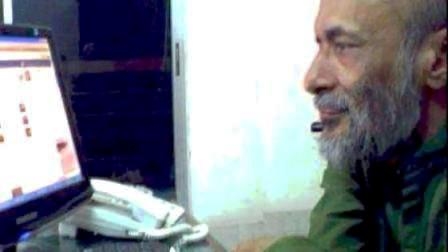Nation observes the victory day :social media net working shouts with joy at Internet
Numan Azmi also mentioned his claim and express his feelings to the editor of www.stoppressbd.com about the situation and told that the Part of the judgement by the Bangladesh High Court Regarding my father in 1993. is ---''Except some news items and one photograph showing that the petitioner met General Tikka Khan or General Yahya Khan, there is nothing to directly implicate the petitioner in any of the atrocities alleged to have been perpetrated by Pakistani Army or their associates – the Rajakars, Al-Badrs or the Al-Shams. Except that the petitioner was hobnobbing with the Military Junta during the war of liberation, we do not find anything that the petitioner was in any way directly involved in perpetuating the alleged atrocities during the war of independence''.
Please note, number of political leaders, including Sheikh Mujibur Rahman, met those generals in 1971 in an attempt to either resolve the crisis or to stop the violence.
My father was one of the leaders who met these generals to argue his case for peaceful hand over of power to the elected party Awami League and its leader Shiekh Mujibur Rahman and also to demand and argue to stop the atrocities. This is the truth and fact.
Like many other Bengalis, eminent sculptor Ferdousy Priyabhashini is happy to see those accused of mass murder and rape during Bangladesh's 1971 independence war finally stand trial.
Ms Priyabhashini was 23 at that time, when a group of Pakistani soldiers and their Bangladeshi associates stormed into her house and dragged her away. Her husband and three children watched helplessly as she was bundled into an army jeep.
For seven months, she was repeatedly raped and tortured at an army camp in the capital Dhaka, she says.
"I was subjected to extreme physical and mental torture. They had no mercy. Many of my friends and relatives were killed in front of me," she said.
"It is heartening to see, 40 years after those atrocities, that some of those responsible for those gruesome acts are in the dock," Ms Priyabhashini said.
Violent birth
Bangladesh is yet to come to terms with its violent birth in 1971, after the Pakistani government sent in its army to stop was what was then East Pakistan from becoming independent.
It is not exactly clear how many people died, but official figures estimate that more than three million people were killed and hundreds of thousands of women raped during the nine-month bloody battle.
The war ended with the surrender of Pakistani forces to India, which intervened after millions of refugees flooded its eastern states to escape the brutality.
Soon after the war, there were demands from the victims and human rights groups to try those responsible for the slaughter, rape and looting.
However, Delhi, Dhaka and Islamabad agreed not to pursue war-crimes charges against the Pakistani soldiers, who were allowed to go back to their country.
Collaborators pursued.
In 2010, for the first time, the Awami League-led government set up the International Crimes Tribunal (ICT) to try those Bangladeshis accused of collaborating with Pakistani forces and committing atrocities.
So far seven people, including two from the main opposition Bangladesh Nationalist Party and five from the Islamist Jamaat-e-Islami party, have been arrested and are facing trial in Dhaka. All of them deny the charges.
The Jamaat-e-Islami is the country's largest Islamist party and it opposed Bangladesh's independence from Pakistan at that time. Some of its members allegedly fought alongside the Pakistani army.
However, the two opposition parties accuse the government of carrying out a vendetta and trying to use the trial to curb their political activities.
"The trial will be transparent and independent. International observers will be allowed to come and watch the trial. The accused will be given full opportunity to defend their case," said the Bangladeshi law minister, Shafique Ahmed.
Despite the overwhelming public opinion in support of the trial, there are some bottlenecks.
Fair trial doubts
The leader of Jamaat-e-Islami is accused of more than 50 killings during the war.
First of all, this tribunal is almost a domestic set-up and the three judges sitting on the tribunal are from Bangladesh. The United Nations and other international agencies do not have any major role to play.
Human rights groups said some of the rules were not consistent with international standards, as followed by war crimes tribunals in Rwanda or Cambodia.
"Bangladesh has promised to meet international standards in these trials, but it has some way to go to meet this commitment," Human Rights Watch said in a statement issued earlier this year.
Defence counsels also complained about a lack of time for their team to prepare for the case. They also argued that Bangladesh didn't have the expertise to try war crimes, so the trials could not be fair.
'Culture of impunity'
However, the government vehemently argued that it had enough legal expertise and manpower to conduct the trial. It promised that there would not be any political interference or revenge.
Despite the debate over whether or not the tribunal meets international standards, there is broad agreement in the country that the trial is long overdue. The consequences are likely to be severe if it doesn't go ahead this time.
"The trial will put an end to the culture of impunity, said Aly Zaker, an eminent writer and director.
"If not, the peace and harmony which the people of Bangladesh are trying to practise can be totally destroyed. So this trial is very important for our country and our people," he said.

Comments
Post a Comment